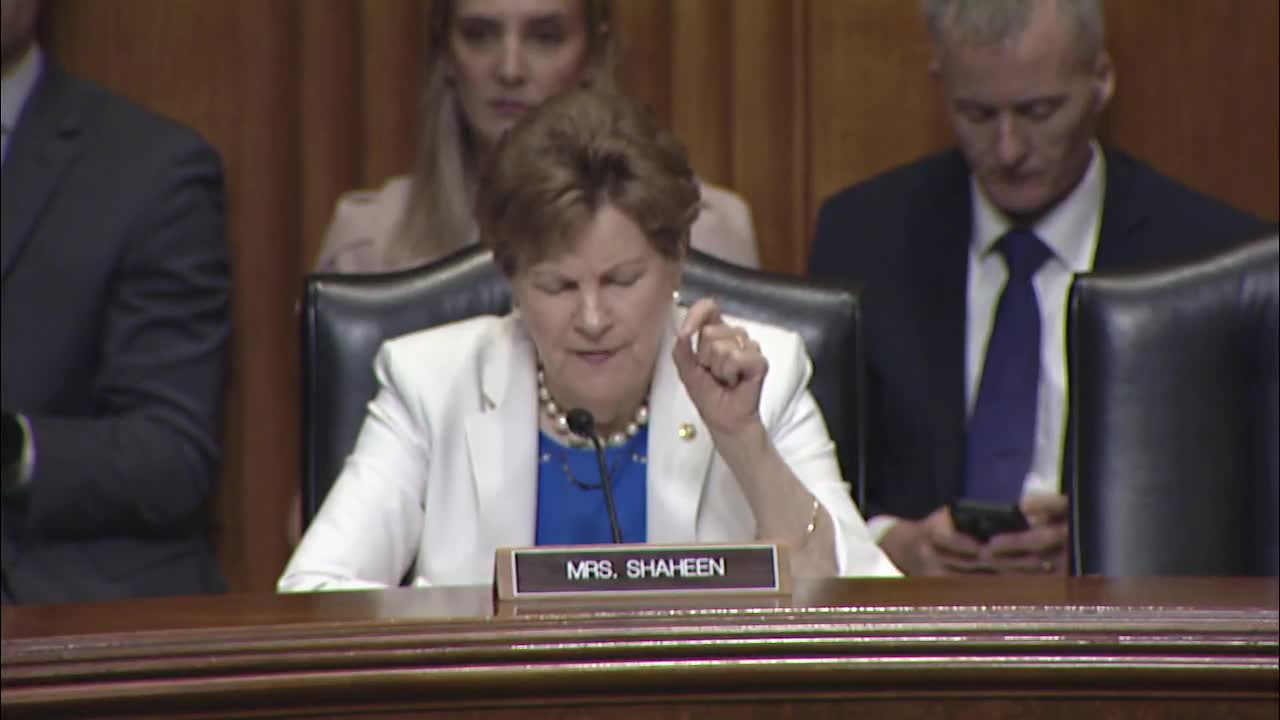China's Role in Escalating Global Conflicts Under Scrutiny
July 30, 2024 | Foreign Relations: Senate Committee, Standing Committees - House & Senate, Congressional Hearings Compilation, Legislative, Federal
This article was created by AI summarizing key points discussed. AI makes mistakes, so for full details and context, please refer to the video of the full meeting. Please report any errors so we can fix them. Report an error »

In a recent government meeting, officials discussed the escalating tensions in the Middle East, particularly regarding Israel's military actions in southern Lebanon against Hezbollah. Concerns were raised about China's role in the region, with officials noting that while China has historically increased its influence, its current engagement in the ongoing conflict has been minimal. The U.S. is being called upon to take a more active diplomatic role, especially in preventing further escalation and facilitating hostage exchanges in Gaza.
Senators expressed alarm over China's support for adversaries like Russia and Iran, highlighting that Chinese purchases of oil from these nations are undermining U.S. sanctions. One senator characterized China as using Russia as a \"wrecking ball,\" benefiting economically while these countries face international restrictions. The discussion underscored the growing alliance among nations challenging U.S. interests, including China, Iran, and North Korea.
The meeting also touched on the importance of international alliances, particularly NATO's strengthened position in response to these challenges. Officials emphasized the need for a coordinated approach with allies to counteract the influence of authoritarian regimes.
Additionally, the conversation shifted to the issue of disinformation, particularly China's extensive propaganda efforts, which far exceed U.S. investments in countering such narratives. The Global Engagement Center, which plays a crucial role in combating misinformation, is set to lose its authorization at the end of the year. Officials warned that losing this capacity would significantly hinder efforts to expose and counteract Chinese and Russian disinformation strategies.
Overall, the meeting highlighted the complex geopolitical landscape, the need for robust U.S. diplomacy, and the critical role of international partnerships in addressing the multifaceted challenges posed by adversarial nations.
Senators expressed alarm over China's support for adversaries like Russia and Iran, highlighting that Chinese purchases of oil from these nations are undermining U.S. sanctions. One senator characterized China as using Russia as a \"wrecking ball,\" benefiting economically while these countries face international restrictions. The discussion underscored the growing alliance among nations challenging U.S. interests, including China, Iran, and North Korea.
The meeting also touched on the importance of international alliances, particularly NATO's strengthened position in response to these challenges. Officials emphasized the need for a coordinated approach with allies to counteract the influence of authoritarian regimes.
Additionally, the conversation shifted to the issue of disinformation, particularly China's extensive propaganda efforts, which far exceed U.S. investments in countering such narratives. The Global Engagement Center, which plays a crucial role in combating misinformation, is set to lose its authorization at the end of the year. Officials warned that losing this capacity would significantly hinder efforts to expose and counteract Chinese and Russian disinformation strategies.
Overall, the meeting highlighted the complex geopolitical landscape, the need for robust U.S. diplomacy, and the critical role of international partnerships in addressing the multifaceted challenges posed by adversarial nations.
View the Full Meeting & All Its Details
This article offers just a summary. Unlock complete video, transcripts, and insights as a Founder Member.
✓
Watch full, unedited meeting videos
✓
Search every word spoken in unlimited transcripts
✓
AI summaries & real-time alerts (all government levels)
✓
Permanent access to expanding government content
30-day money-back guarantee
